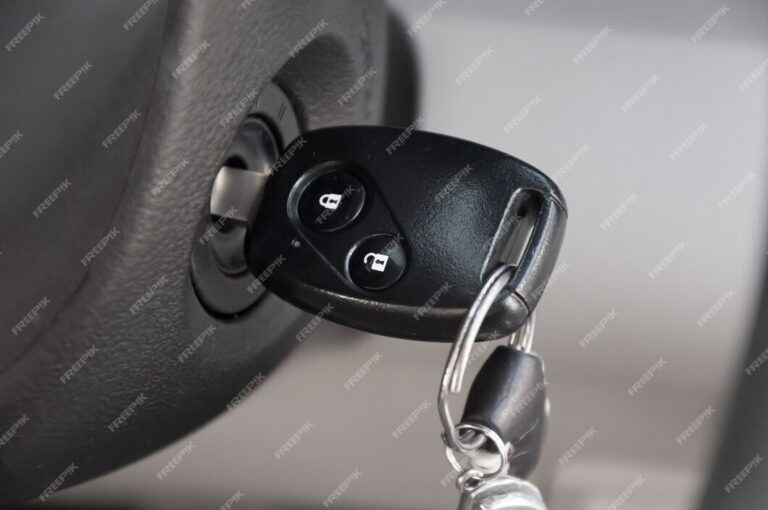It can be concerning and unpleasant when you detect the smell of gas inside your car. The odor of gasoline inside a vehicle can be indicative of a variety of issues, some of which may pose a safety hazard. Understanding the potential reasons for this smell can help you identify and address the underlying problem in a timely manner. In this article, we will explore some common causes of why your car might smell like gas and what you can do to resolve the issue.
1. Fuel Leaks
One of the most common reasons for a gas smell in your car is a fuel leak. Fuel leaks can occur in various parts of the vehicle, including the fuel tank, fuel lines, or fuel injectors. If you notice a strong gas odor, it’s important to check for any visible signs of leaking fuel, such as wet spots or puddles underneath the car. Additionally, inspect the fuel lines and connections for any signs of damage or deterioration.
Fuel leaks can be hazardous and should be addressed immediately. Continuing to drive a vehicle with a fuel leak can pose a fire risk and may lead to engine performance issues. If you suspect a fuel leak, it’s crucial to have the vehicle inspected by a qualified mechanic as soon as possible.
2. Evaporative Emissions System Issues
The evaporative emissions system in a car is designed to capture and store fuel vapors from the fuel tank, preventing them from being released into the atmosphere. If this system develops a fault, it can result in the escape of fuel vapors into the car’s cabin, leading to a noticeable gas odor.
Common causes of evaporative emissions system issues include a malfunctioning charcoal canister, faulty purge valve, or damaged hoses. A diagnostic scan of the vehicle’s onboard computer system can help pinpoint the specific component that is causing the problem. Addressing issues with the evaporative emissions system typically requires professional expertise to properly diagnose and repair.
3. Overfilled Fuel Tank
Occasionally, the smell of gas in a car may be attributed to overfilling the fuel tank. When the fuel tank is overfilled, excess fuel can be forced into the evaporative emissions system or charcoal canister, leading to the release of fuel vapors into the car’s interior.
If you recently topped off your fuel tank and subsequently noticed a strong gas odor, it’s possible that overfilling may be the cause. To mitigate this issue, avoid topping off the tank when refueling and ensure that the fuel cap is securely tightened after filling up.
4. Engine Performance Problems
In some cases, a gas smell inside a car can be a symptom of engine performance issues. If the engine is running rich, meaning it is burning an excessive amount of fuel, unburnt fuel vapors may be emitted through the exhaust system and make their way into the vehicle’s cabin. This can result in a noticeable gasoline odor inside the car. Engine performance problems that can lead to a rich fuel condition include a malfunctioning fuel injector, a faulty oxygen sensor, or issues with the engine’s air intake system.
If you suspect that engine performance issues are causing the gas smell in your car, it’s advisable to have the vehicle inspected by a qualified mechanic. Diagnosing and addressing the underlying cause of the rich fuel condition can help eliminate the odor and prevent potential damage to the engine and emissions system.
5. Fuel Cap Issues
A loose, damaged, or missing fuel cap can also contribute to the presence of a gas smell inside a car. The fuel cap plays a critical role in sealing the fuel tank and preventing the escape of fuel vapors. If the fuel cap is not properly secured or is damaged, it can allow fuel vapors to permeate the car’s interior.
Inspect the fuel cap for any signs of wear, cracking, or misalignment. If the cap appears to be damaged or does not tighten securely, it should be replaced with a new one that is compatible with the vehicle’s make and model. Ensuring that the fuel cap is in good condition and properly installed can help prevent the infiltration of gas odors into the car.
6. Fuel Spillage
Spilling fuel while refueling the car can lead to a temporary gas odor inside the vehicle. Even small amounts of spilled fuel can produce a noticeable smell, especially in confined spaces such as the car’s interior. If you recently refueled and suspect that fuel spillage is the cause of the gas odor, thoroughly clean any spilled fuel and allow the car to ventilate to dissipate the smell.
When refueling, it’s important to be attentive and avoid overfilling the tank or spilling fuel. If fuel is spilled, prompt cleanup and proper ventilation can help eliminate the odor and prevent it from lingering inside the car.
7. Exhaust System Issues
A malfunctioning or damaged exhaust system can also contribute to the presence of a gas smell inside a car. If there are leaks or holes in the exhaust system, unburned fuel and exhaust gases may enter the vehicle’s cabin, resulting in a noticeable odor of gasoline.
Examine the exhaust system for any signs of damage, such as rust, holes, or disconnected components. If you suspect that exhaust system issues may be causing the gas odor, have the vehicle inspected by a professional mechanic. Addressing exhaust system problems is essential not only for eliminating the gas smell but also for ensuring the proper operation of the vehicle’s emissions control system.
Conclusion
When your car smells like gas, it’s important to take the issue seriously and address it promptly. The presence of a gasoline odor inside a vehicle can stem from various causes, ranging from fuel leaks to evaporative emissions system issues. By identifying the potential source of the smell and seeking professional assistance when needed, you can help ensure the safety, performance, and comfort of your car.










Thank you for providing me with these article examples. May I ask you a question?
One thing I have actually noticed is that often there are plenty of fallacies regarding the lenders intentions any time talking about foreclosed. One fable in particular is the fact that the bank would like your house. The financial institution wants your hard earned cash, not your house. They want the funds they lent you along with interest. Preventing the bank is only going to draw any foreclosed final result. Thanks for your publication.